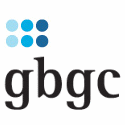Vivaro Reaches Regulatory Settlement with the Gambling Commission
UNITED KINGDOM (February 9, 2023) — On 17 January 2023, the UK Gambling Commission (the “Commission”) announced that Vivaro Limited (“Vivaro”), trading as vbet, will pay a £337,631 regulatory settlement for anti-money laundering and social responsibility failures. The Commission’s investigation followed a compliance assessment carried out in April 2021, which resulted in the commencement of a licence review.
Key failings
The Commission found that between October 2020 and June 2021, Vivaro’s key failures consisted of the following:
- AML: Breach of paragraphs 2 and 3 of licence condition (“LC”) 12.1.1 –
- Paragraph 2 states that following the risk assessment, licensees must have appropriate policies, procedures, and controls in place to prevent money laundering and terrorist financing. Paragraph 3 states that licensees must ensure that such policies, procedures, and controls are implemented effectively.
- Vivaro accepted that customers reviewed during the compliance assessment were subject to anti-money laundering checks which: (i) were ineffective in establishing SOF; (ii) involved a lack of scrutiny of bank statements to identify other income; and (iii) relied on winnings from other operators. For example, one customer deposited £14,850 within two months without sufficient SOF being established because Vivaro placed an overreliance on the net deposit position. In respect of another customer, Vivaro failed to consider the risks associated with recycled winnings when provided with a bank statement showing a balance of over £270,000, which were said to be winnings from another betting account. In particular, no additional checks were undertaken to confirm the origin of the funds.
- Vivaro also accepted that:
- customers were able to deposit a significant sum of money before know your customer (“KYC”) checks were carried out;
- its policies and procedures did not provide sufficient guidance on how staff should verify source of funds (“SOF”);
- its AML triggers were set too high, based on the average level of customer spending; and
- it did not sufficiently consider the risks associated with a customer using funds to gamble that had originated from cryptocurrency. The Commission emphasised that cryptocurrency is considered high risk and should be subject to further investigation.
- AML: Breach of paragraph 1 of LC 12.1.2 –
- Licensees are required to comply with Parts 2 and 3 of the Money Laundering Regulations 2007 (UK Statutory Instrument No. 2157 of 2007) as amended by the Money Laundering (Amendment) Regulations 2007 (UK Statutory Instrument No. 3299 of 2007) (the “Money Laundering Regulations”).
- Vivaro accepted that it breached this condition as a result of the failings outlined above.
- Customer interaction: Failure to comply with paragraphs 1 and 2 of the social responsibility code provision (“SRCP”) 3.4.1 –
- Paragraph 1 of the SRCP 3.4.1 states that licensees must interact with customers in a way that minimises the risks of customers experiencing harm associated with gambling. This must include: (i) identifying customers who may be at risk of experiencing such harm; (ii) interacting with such customers; and (iii) understanding the impact of the interaction on such customers and the effectiveness of the licensee’s actions.
- Paragraph 2 states that licensees must take into account the Commission’s guidance on customer interaction.
- Vivaro accepted that it breached paragraphs 1 and 2 as:
- prior to a customer reaching a ‘higher tier’ AML trigger, Vivaro had insufficient controls in place to protect new customers and to effectively consider high-velocity spend and duration of play;
- its KYC agents were insufficiently resourced to identify customers at risk and to carry out tailored customer interactions;
- there was an overreliance on email interactions, which were not sufficiently tailored; and
- there was a poor level of recording and no evaluation of (i) the use or impact of responsible gambling tools; or (ii) customer interactions for their effectiveness.
For example, one customer with a salary of £5,000 a month was able to deposit £20,000 between 9 September 2020 and 5 February 2021 (which amounted to 80% of the customer’s salary) and the licensee did not sufficiently review this level of spend.
Regulatory settlement
The regulatory settlement reached between Vivaro and the Commission consists of:
- a payment in lieu of a financial penalty of £302,500;
- a divestment of £35,131;
- the voluntary placing of an additional condition on Vivaro’s operating licence requiring the licensee to:
- undertake a third-party audit within 12 months of the conclusion of the licence review to determine whether the licensee is effectively implementing its anti-money laundering and social responsibility policies, procedures, and controls in accordance with its regulatory requirements;
- provide the Commission with a copy of the audit report within 5 working days of it being received;
- agreement to the publication of a statement of facts by the Commission; and
- payment of £15,606.50 towards the Commission’s investigative costs.
In determining the appropriate outcome, the Commission took the following factors into account:
- there were significant LC breaches for a sustained period of time;
- proactive and timely action was taken by Vivaro to address all the issues identified;
- Vivaro was open and transparent from the outset of the investigation and fully cooperative throughout; and
- the nature of Vivaro’s business, including its financial resource.
Comment
The Commission emphasised in its public statement that operators should take account of the failings identified to ensure industry learning and to identify and implement improvements, and it set out a list of questions that operators should consider. Particular points of note from these questions and the statement are:
- Operators should question whether their customer risk profiles are informed by, or linked to, their money laundering and terrorist financing risk assessment.
- The Commission considered that: (i) sufficient SOF should have been established for a customer with deposits in excess of £14,000 over a period of two months and the net deposit position could not be relied on in this regard; and (ii) further review of a customer’s level of spending should have been carried out for a customer who deposited 80% of salary over a period of five months.
- Operators are expected to consider the risks associated with recycled winnings and cryptocurrency. When reviewing bank statements from customers that show winnings from other betting accounts or originating from cryptocurrency, further checks should be carried out.
By: Tamsin Blow and Alex Askew.
SOURCE: CMS Cameron McKenna Nabarro Olswang LLP / Via Lexolgy
Tags: anti-money laundering, Lexology, Vivaro Limited, vbet, licence review, social responsibility failures, regulatory settlement


























